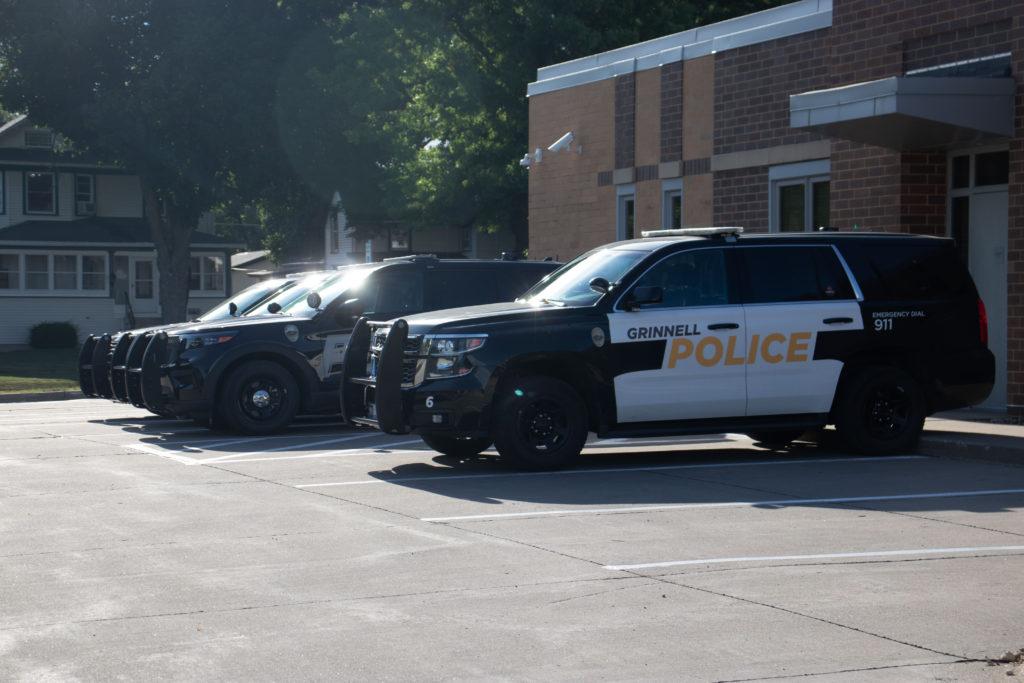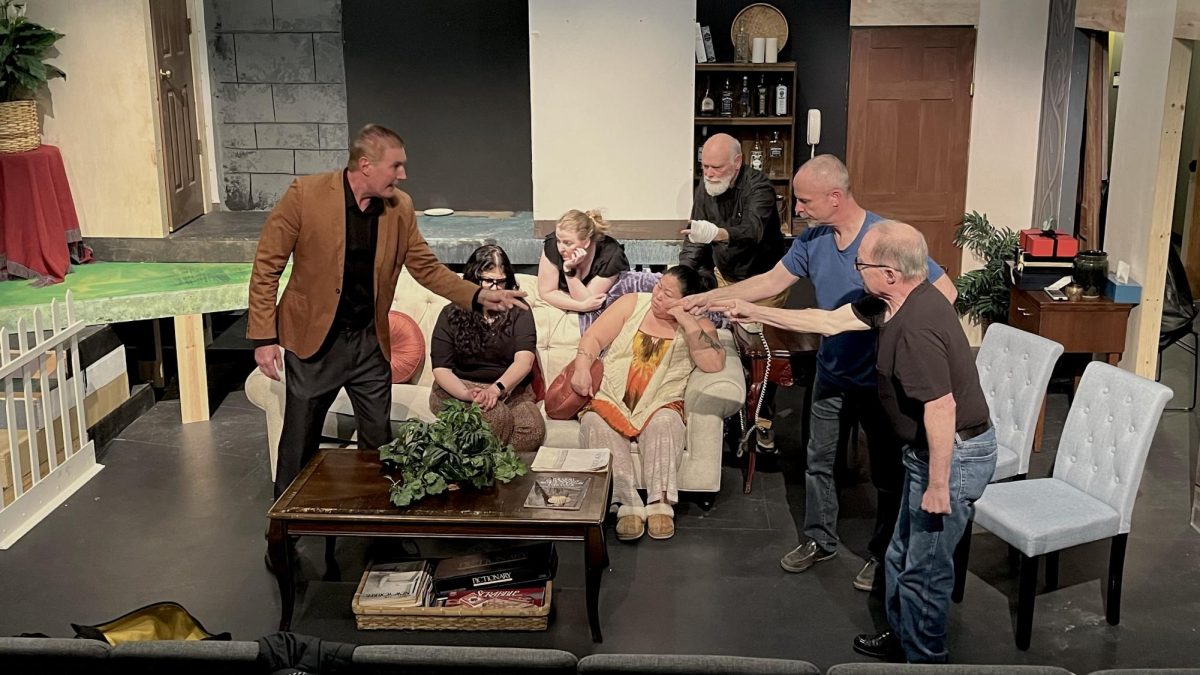After Grinnell residents came together last month to honor the life of George Floyd, cut short in an act of murder by Minneapolis police officer Derek Chauvin, a new wave of anti-racist activism is rising in the local community. For Professor Kesho Scott, sociology, who organized the hybrid virtual and in-person vigil held on June 7, two local activist organizations have made promising progress, even in their early stages.
Committee to Reimagine Policing in Grinnell
As per an open letter presented to the Grinnell City Council, the Committee to Reimagine Policing in Grinnell defines itself as a group of community members seeking to “seize this moment to examine, learn together from and rectify the historical oppression and violence against Black citizens and other people of color in our own town of Grinnell.”
In an interview with The S&B, Kirsten Klepfer, pastor of Grinnell’s First Presbyterian Church and a member of the committee, said that the group’s main priorities right now are to foster an environment for conversations about race within Grinnell and to create a community where the local police department feels accountable to all people.
According to committee member Lily Hamilton ’19, the next couple of months are crucial, because current Grinnell Chief of Police Dennis Riley will be retiring. In order to create a more inclusive community and conversation, the committee is hoping to have a voice in the selection process.
“We recognize that we’re an organized group that is able to advocate for community input in this process,” said Hamilton. “So, we want to ensure that we’re included.”
REDI Grinnell
Meanwhile, Reimagine Equity Diversity Inclusion in Grinnell (REDI Grinnell ) — composed of teachers and community members — is focusing its effort on the Grinnell-Newburg School District. Their goal, according to Grinnell-Newburg superintendent Janet Stutz, is to create an educational environment that is actively anti-racist and more inclusive of all histories and backgrounds.
This past spring, Stutz received calls and letters from several recent graduates of the Grinnell-Newburg High School stating that they did not feel their education adequately “prepared them” for the racial divides and barriers that they underwent and observed after leaving high school.
For Stutz, this was a wakeup call. In an effort to correct shortcomings within the school district’s curriculum, Stutz partnered with Professor Caleb Elfenbein, who teaches history and religious studies at Grinnell College, and other community members and district teachers to create REDI Grinnell.
Community diversity and student involvement
According to Scott, who is involved with both the Committee to Reimagine Policing in Grinnell and REDI Grinnell, while these groups may have slightly different paths ahead of them, their shared goal is to create a more equitable and inclusive community.
Scott and Stutz both agree that this will take years of work.
According to Scott, despite the fact that Grinnell is a “small town in rural Iowa,” problems regarding equity are sometimes amplified due to the fact that diversity is brought in by outside organizations, such as the College, The Mayflower Community and the Unity Health Complex.
“This a predominantly white town of 9,112 people,” said Scott. “2,000 people come to this town for work. They are our diversity.”
Scott, Stutz and other organizers said that Grinnell College students and staff will be an enormous asset during this time of transition and change. While the groups are finding their footing, they are hoping to recruit new, younger committee members, especially from the College.
Jelani McCray and Malcolm Davis, both ’21, are currently organizing within the Grinnell College community for a collective called Liberate Grinnell. McCray, who serves as a liaison between Liberate Grinnell and Committee to Reimagine Policing in Grinnell, says that while Liberate Grinnell is excited to collaborate and provide input for the Committee, these groups have slightly different goals.
According to McCray, the Collective’s goal right now is to reform the way that Grinnell uses their campus safety officers – namely, he said, the way that Campus Safety often serves as “a sort of pseudo-police agency that observes and patrols campus.”
Zama Buthelezi ’21, who is both a central voice behind the call for more transparency within Campus Safety and an independent organizer, says that while all these groups are not necessarily working together, they are working for a common goal: safety for all people living in Grinnell, even those who are not permanent residents. Although many of these groups are in their beginning stages, Buthelezi foresees them working together in the future and urges students to become involved with local groups.
“I don’t think it’s like really possible to live in any place and not engage in it,” she said.



























































